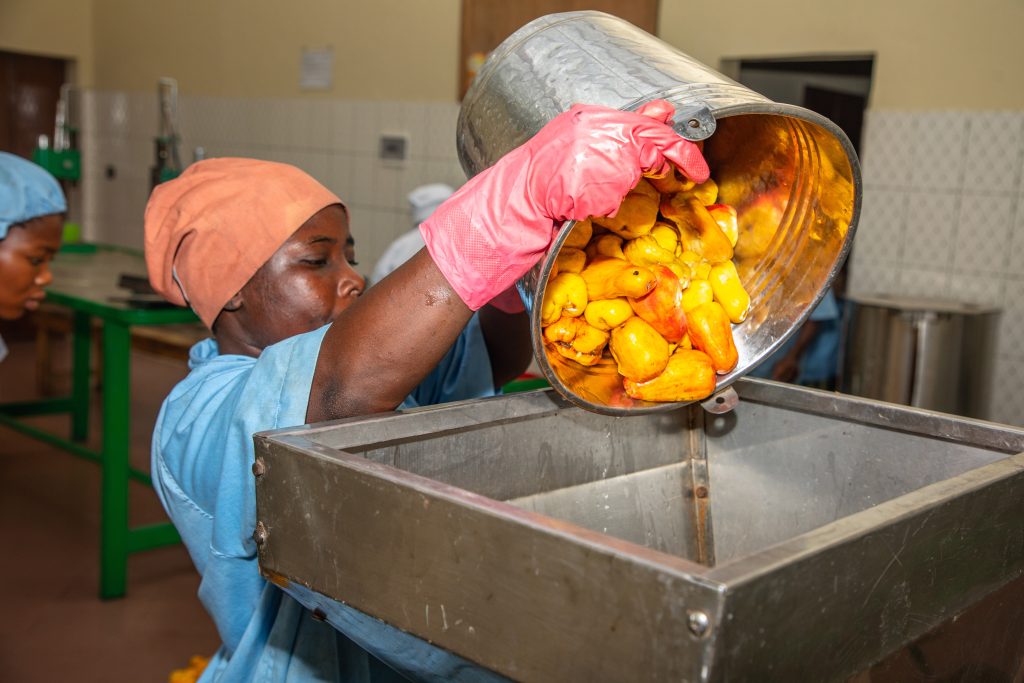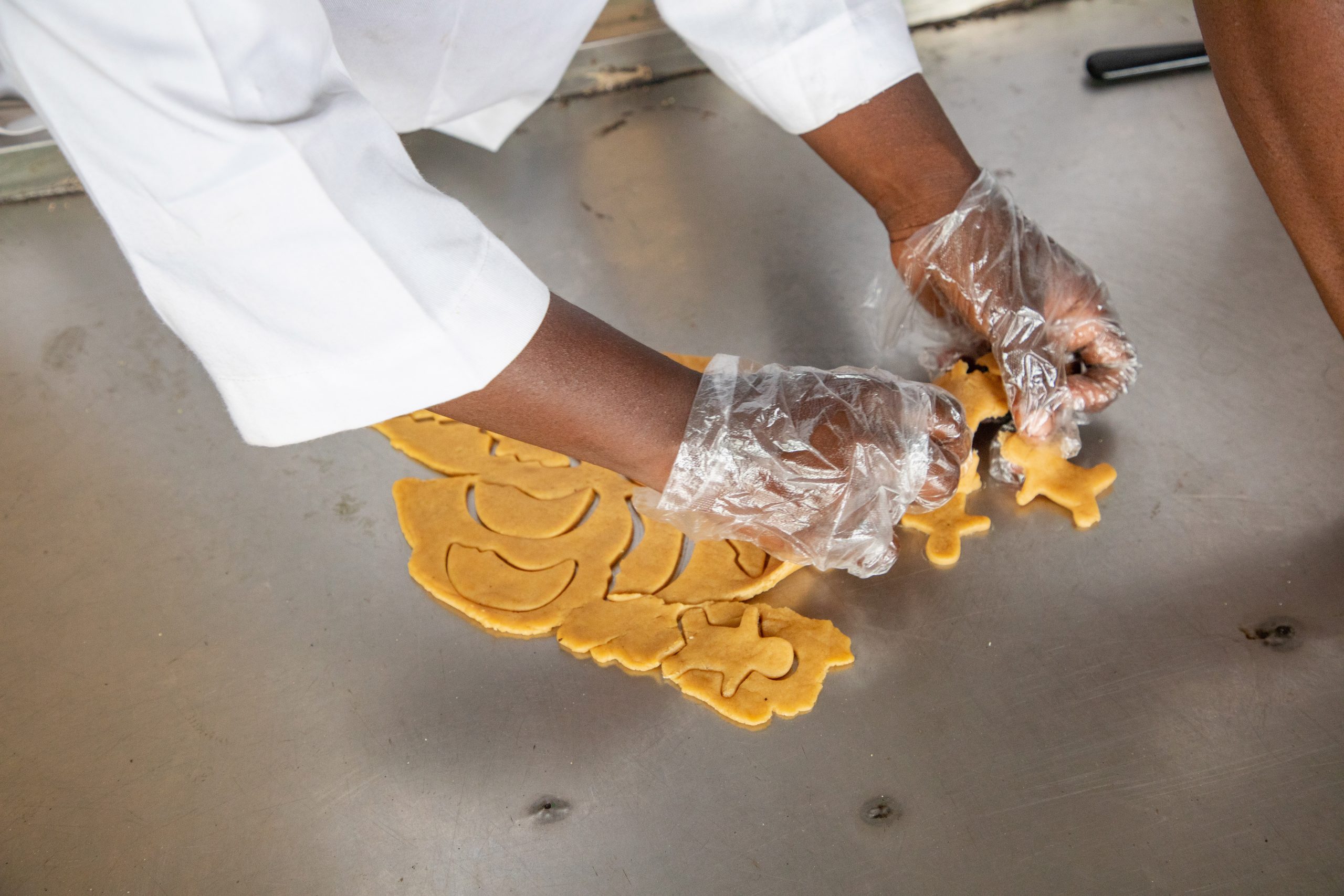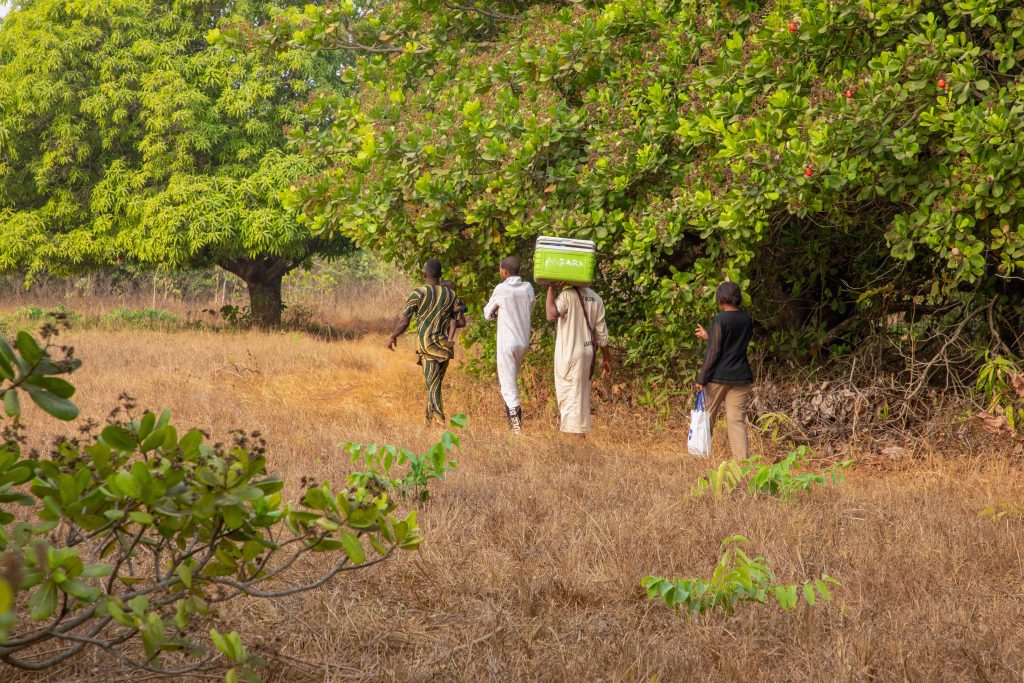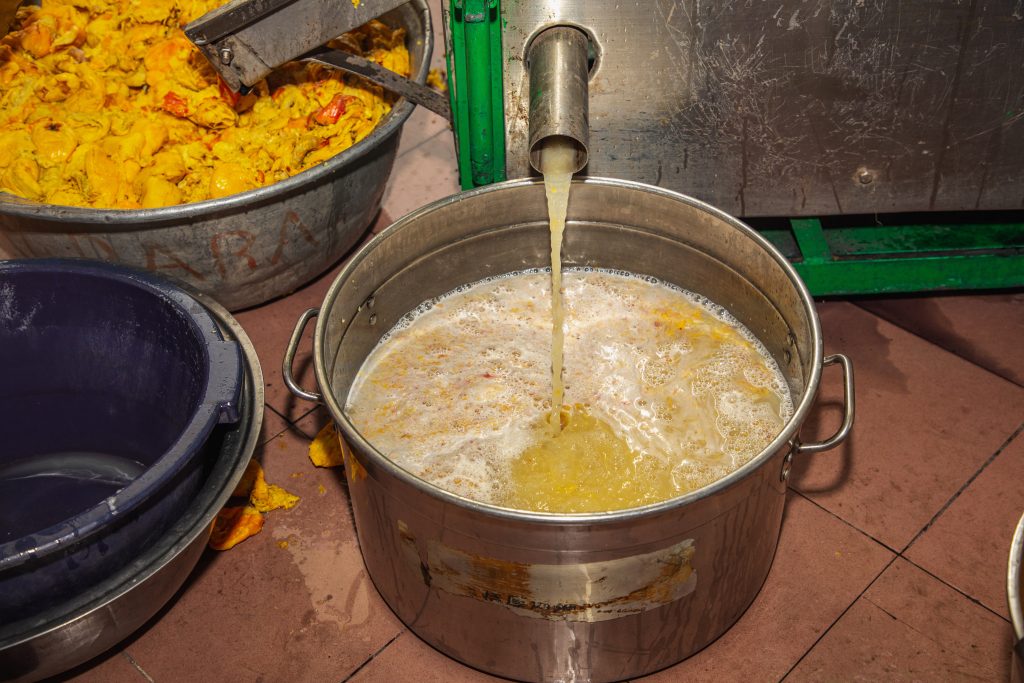Click here to download this story as a PDF


Established in 2012, the 17-member, all women Agbara-Oluwa Cooperative based in Dassa-Zoumé is something of a post-production juggernaut. One reason is that they listen to their customers.
The co-op is known for its variety of juices—a key sector of their business. It was their juice that inspired another product.
“We make fruit juices such as cashew apple juice, pineapple juice, baobab juice, ginger juice, tamarind juice, mango juice, just to mention a few,” says the co-op’s president Adelaide Laourou. “Our flagship product is the cashew apple juice.”
Along with domestic sales, its cashew apple juice is sought out in countries that include Niger, Burkina-Faso and Togo. Demand is increasing.
The cooperative offers a potentially lucrative market for growers of cashew trees. But the women faced a problem. Despite the large quantity of apples produced during the season, the cooperative sometimes could not get enough apples to meet demand.
Cashew trees offer growers two immediate sources of income: the cashew nut and cashew apple. But the apple has suffered a bad reputation for generations. Many growers simply threw out the fruit believing a
“Before CRS support, we did not produce all these different products, so we put the techniques we acquired into practice and put them on the market.”
—Adelaide Laourou
longstanding myth that cashew apple juice can’t be mixed with sugar or milk and therefore had little commercial value.
Adelaide had long known about U.S. Agency for International Development’s Farmer-to-Farmer, or F2F program. She decided to contact Catholic Relief Services, the implementer of the F2F program in Benin. The partnership began in 2020 and activities started the following year.
The F2F program matches U.S. volunteers with expertise in a variety of agricultural an business disciplines to farmers and agriculture- related businesses.
“Farmer-to-Farmer helped us to strengthen our cluster with cashew nut producers,” Adelaide says. “A volunteer of Farmer-to-Farmer showed the advantages of working together so that the incomes are shared.”
The co-op also worked with the F2F volunteer to let farmers know they had value they weren’t taking advantage of. While the co-op now had access to more cashew apples, farmers saw the price of a kilogram of apples go from 15 to 25 francs for apples in the field and 35 francs when producers deliver the apples to the co-op at the factory.
The cooperative’s annual sales are approximately$45,000, with production of at least 25,000 bottles of apple juice, which is about 20 tons of processed cashew apples; and with its other juices, the cooperative reaches 500,000 bottles of juice annually. It also produces other products derived from the cashew apple such as spirits and is currently planning to start producing biscuits with cashew apple flour. The host is actively promoting the benefits of cashew apple juice consumption to Beninese consumers.
“The system of supply was the challenge that we had to take up and with the support of Farmer- to-Farmer, I think that challenge has been met,” Adelaide says.
The popularity of their juice led to another new product.
“When we participated in fairs or in different events, people asked us, ‘Are we going to drink only? And if we drink, will we be satisfied? We can’t just drink juice all the time,’” says Adelaide. “So that’s where the idea of making cookies came from.”
Soy was already a significant part of their operation. The co-op produced soy yoghurt, soy milk, cocada and soy toast. Why not cookies?
While their business was growing from the demand for their products expanding and diversifying, the co-op experienced challenges it sought to overcome. They contacted USAID’s F2F program.
In this case, the F2F approach brought together several groups of local stakeholders. Along with the co-op, Adelaide said, they recruited technical staff, processors and the producers who supply the co-op with raw materials.
“We are trained in a cluster,” Adelaide says. “We will say that this has impacted everyone.”
The cluster included advisors from Benin’s Territorial Agency for Agricultural Development and its Departmental Directorate of Agriculture, Livestock and Fisheries.
The co-op training covered key business practices that sharpened their use of tools that would help them better manage their operations.
“Before this training, we did not regularly keep our management tools,” Adelaide says.
As they began using the tools, they saw product quality rise.
“I am also very sure that when we put in place all the necessary tools it will further boost the economy of Agbara-Oluwa,” Adelaide says.
The partnership included a detailed assessment of the co-op’s soybean process, from selecting larger beans because they contain more milk, to packaging and preservation.
Another key aspect of the work was marketing and communication.
In addition to raising awareness of the co-op’s products—soy cookies among them—there was a persistent myth they needed to overcome: the widespread notion that soy is for animals and not humans.
Adelaide says, “The volunteer is helping us to make a documentary on everything we do and to do the branding of all our labels, the flyers in any case, everything related to communication.”
As the hard work of addressing Agbara-Oluwa’s concerns and ambitions continued, relationships grew. F2F volunteers often become more than consultants.



“I know that there are values linked to soy. The volunteers were very precise, and they left us a lot of documentation and we are still in contact with them,” Adelaide says. “One of the volunteers, after the Farmer-to-Farmer program training, became a friend who helped me write a business plan for free because of the relationship that we have built.”
They’re already seeing results, and by word of mouth, customers are doing a key communications service.
“I swear that with the cookies, people, when they take the juice and eat the cookies, they are satisfied and that’s how people started to order,” Adelaide says. “Before CRS support, we did not produce all these different products, so we put the techniques we acquired into practice and put them on the market.”
The value the co-op and the members of the entire value chain have added to the community has not escaped Adelaide’s notice. The SOS Children’s Village of Dassa-Zoumé sees the benefits of buying from the group.
“During their activities, they order a lot because they know the value of soy for the growth of the children, as well as their staff and the hotels of the place like Capitole, Jéco,” Adelaide says. “When they have events, for the coffee breaks, it is our soy cookie and the soy yoghurt that people use.”
Adelaide said that the lessons learned through partnership with F2F will continue to be passed along to other producers. As word of its successes spread, the co-op’s expertise and best practices are in demand.
“When there is an activity that is related to the clusters, people invite us and the cooperative to share the experience acquired by our cluster,” Adelaide says. “Because everything we do like this has been successful, we are a model.”
“Farmer-to-Farmer gives us the essentials so that we ourselves can be autonomous in our lives,” Adelaide said. “The strategy used by Farmer-to-Farmer, I like it a lot and I think it’s a lesson I learned, to give ourselves, to commit to what we do, to be determined. I think that’s very important in the life of an association or a company.”

The CRS F2F program is a USAID-funded program focused on reducing hunger,
malnutrition, and poverty across six countries: Benin, Timor-Leste, Ethiopia, Nepal,
Rwanda, and Uganda. The program runs from 2019-2023 and aims to generate
sustainable and broad-based economic growth in the agricultural sector. U.S. volunteers
with agricultural expertise share skills and help build capacity for farmers through
short-term training and technical assistance projects resulting in more productive,
profitable, sustainable, and equitable agricultural systems.
Photos by Mountaga Drame for CRS